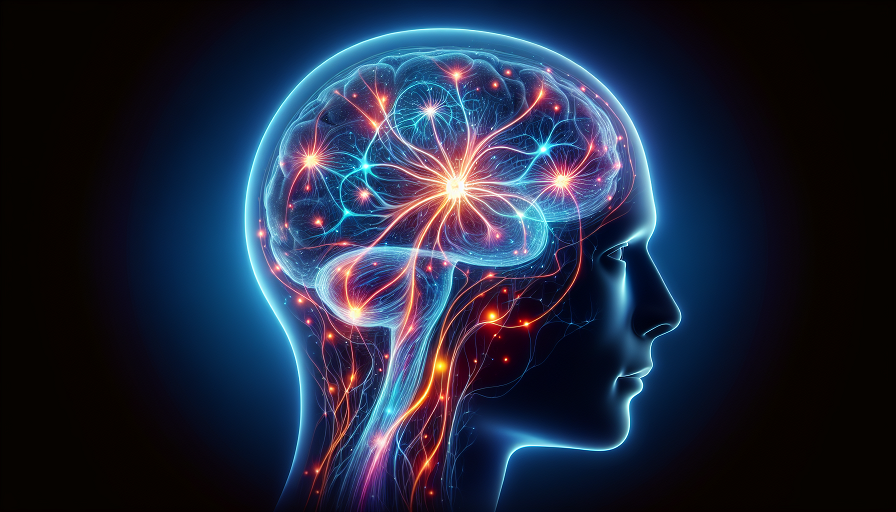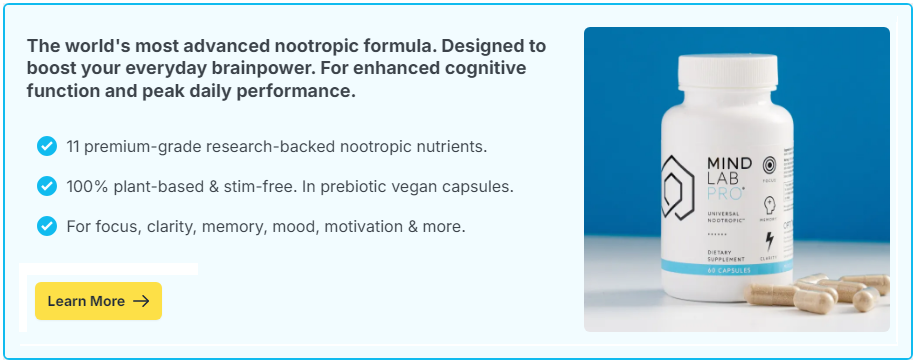
Have you ever sat in front of a blank page, struggling to find the right words? Every writer, at some point, faces the challenge of verbal expression. It might surprise you to learn that an emerging group of supplements, known as nootropics, claims to boost creative abilities, including writing. But can these “brain enhancers” actually make you a more expressive writer?
Contents
What Are Nootropics?
Nootropics, sometimes called smart drugs or cognitive enhancers, are substances that aim to improve brain function. They’re thought to enhance memory, focus, creativity, and even overall cognitive performance. These supplements can be natural, like herbs and vitamins, or synthetic compounds created in labs. Their popularity has spiked in recent years, fueled by students, professionals, and anyone looking to sharpen their mental edge.
Types of Nootropics
- Natural Nootropics: These include herbal supplements like ginkgo biloba, ginseng, and bacopa monnieri. Natural options also include essential nutrients such as Omega-3 fatty acids.
- Synthetic Nootropics: Man-made compounds such as racetams and modafinil fall into this category. These are more powerful, but they may come with higher risks and potential side effects.
How Do Nootropics Work?
Understanding how nootropics impact the brain can feel like unraveling a mystery. Essentially, these substances influence the brain’s chemistry in various ways. They may increase the availability of neurotransmitters, improve blood flow to the brain, or enhance the brain’s resistance to stress.
Neurotransmitters and Creativity
Our brains use neurotransmitters to communicate between neurons. Some nootropics boost levels of neurotransmitters like dopamine and serotonin, which are linked to mood and creativity. Increased dopamine, for example, might lead to better problem-solving skills and more innovative thinking—key elements in creative writing.
Brain Plasticity
Another way nootropics may help is by promoting neuroplasticity, which is the brain’s ability to reorganize itself by forming new neural connections. Enhanced plasticity can lead to improved learning and memory, providing a richer and more diverse source of creative thought.
The Connection Between Nootropics and Writing
Creativity in writing requires a combination of imagination, memory, and the ability to connect ideas meaningfully. Nootropics might aid in each of these areas, potentially leading to a more seamless flow of words and ideas.
Memory Enhancement
A strong memory allows writers to draw on a wealth of experiences and knowledge, making their writing more colorful and informed. Nootropics that enhance memory could help writers recall vivid details and facts, enriching the narrative.
Improved Focus and Concentration
Staying focused is often one of the biggest hurdles for writers. Many nootropics claim to enhance concentration, reducing distractions and helping you stay immersed in your work. This increased focus can be invaluable during the editing process when attention to detail is crucial.
Mood and Motivation Boost
Writing is not just about stringing words together; it’s about conveying emotions and passion. Nootropics that boost mood can enhance the emotional depth of your writing, making it more engaging. Additionally, increased motivation can help defeat writer’s block.
The Caveats of Using Nootropics
While nootropics have potential benefits, they also come with warnings. Not all nootropics are well-researched, and their effects can vary widely from person to person. Natural nootropics are generally considered safer, but even they require caution. It’s important to research thoroughly and consult with a healthcare provider before starting any new supplement regimen, particularly with strong synthetic options.
Possible Side Effects
Some users may experience side effects such as anxiety, insomnia, or headaches. These risks might outweigh the benefits if not monitored properly. Understanding your own body’s reactions is crucial when considering nootropics.
Dependency Concerns
There is also the potential for dependency, especially with synthetic nootropics. Relying too heavily on these substances might lead to decreased cognitive abilities when not consuming them, causing long-term issues.
Balancing Nootropics with Other Techniques
While nootropics might offer an edge, they should not replace other effective techniques for enhancing creativity and writing skills. Balancing these supplements with traditional methods can provide a holistic approach to becoming a better writer.
Writing Exercises
Exercises such as free writing, brainstorming, and mind mapping can ignite inspiration and improve your expressiveness. Setting aside time for regular practice is just as crucial as taking any supplement.
Lifestyle Factors
- Proper Nutrition: A balanced diet can naturally enhance cognitive functions.
- Quality Sleep: Rest is essential for optimal brain performance and creativity.
- Mindfulness: Techniques like meditation can improve focus and reduce stress, aiding in a clearer thought process.
Ultimately, creativity, especially in writing, is a complex blend of capabilities that go beyond what any supplement can offer alone. While nootropics may provide an extra boost, understanding their potential and limitations can better equip you to use them wisely. By combining nootropics with practice and a healthy lifestyle, you might find yourself a more expressive and eloquent writer, ready to unleash your verbal creativity upon the world.

